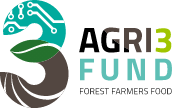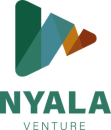What’s next for financial markets in 2022?
Global economies are still in flux and uncertainty is persisting in financial markets, Cardano Development (CD) has encountered many learnings and challenges in emerging and frontier markets and uncovered new opportunities for 2022.
In my second Annual Letter, I reflect on the year gone by and write about the trends I see in financial markets in developing countries, alongside strategic insights and industry data. We’ll also hear from senior leaders within the CD group and other industry players about their observations and new developments.
The trends
Our insights stem from our activities that concentrate around the incubation, implementation and portfolio management of new financial solutions in developing countries. We engage in partnerships with many stakeholders to perform these activities, leading to a unique insight in their views, goals and requirements.
CD has mapped certain issues it addresses through the World Economic Forum’s ‘Strategic Intelligence’ platform pictured above. Which reveals the many interlinked themes that have formed the trends we will focus on in this letter.
TREND 1
Institutional and Private Finance for the SDGs
In frontier and emerging markets there is a quiet stream of private funds, including institutional capital investment, flowing into projects in developing countries that contribute to the United Nations Sustainable Development Goals (SDGs). Blended finance instruments such as guarantees and direct investment have proven increasingly effective, mobilising $205.2 billion in private capital for development from 2012-18.
Source: Data from OECD Amounts mobilised from the private sector for development report.
Source: Data from OECD Amounts mobilised from the private sector for development report.
Although the amount has been growing over time, the mobilised private finance is not enough to bridge the now $2.5 trillion funding gap which may have increased 70% since the start of the pandemic. Many of our new initiatives embrace the urgency of enhancing these flows, to grow them to more meaningful levels.
Where can the extra capital be sourced?
Globally, there are upwards of $160 trillion worth of invested assets in the world from retail, private wealth and institutional investors. The good news is that all three classes of investors are attracted to impact related investments that provide wealth preservation, each with their own particulars. Herewith lies the opportunity to develop innovative financial models that can crowd-in these investors to the impact investing market.
Source: Data from Credit Suisse and Mckinsey Company Conservation Finance report.
Source: Global Impact Investing AUMS as – Data from The GIIN Annual Impact Report.
Which pension funds are leading the way?
We have seen serious first-mover activity with pension funds in the Netherlands, Norway, Canada and Sweden already investing steady amounts of capital into developing countries since 2017. A favourable development for investors in Europe is the further development of the EU taxonomy framework in 2021. It now provides policymakers with a clear definition of what classifies as a sustainable investment. This will create certainty for investors, protect them from greenwashing and mobilise investments to where they are most needed for a sustainable transition.
Source: Data from OECD report on Mobilising institutional investors for financing sustainable development.
What about institutional investors in domestic markets?
We see real appetite from pension funds, insurance companies, mutual funds and banks in a number of African and Asian markets to participate more meaningfully in the debt funding of the real economy of their country. The benefits of enhanced portfolio diversification, increased yield and matched asset/liability tenors are driving the appetite of these investors, whilst increased sophistication of investment teams is reducing the knowledge barrier previously acting as a hurdle.
We predominantly use credit guarantees to help realise the investment potential of domestic capital markets. Mitigating complex credit elements and providing risk acceptance standards help boost the confidence to initiate participation, whilst over time the investors become familiar with risk benchmarks and become more able to increase their own risk appetite.
This appetite for investor participation is showcased in the case of InfraCredit Nigeria and InfraZamin Pakistan, established with the assistance of our group company GuarantCo Management Company, on the back of which CD is currently creating the Kenya Credit Enhancement Facility.
Furthermore, Nigeria has reasonably developed debt capital markets with a fast-growing domestic pension fund market that increased 7% in October 2021 to ₦13.1 trillion ($31.5 billion) from ₦12.3 trillion ($29.5 billion) in December 2020. The opportunity is therefore clear, domestic currency can create a new asset class for domestic institutional investors in Nigeria and beyond.
Engaging Private Capital
How are some CD group start-ups and scale-ups addressing the challenge to engage private capital including institutional investors?

“Liquidity is one of the main obstacles to the broad development of impact investing due to the fundamental mismatch between the patient capital required by high impact projects on the ground and private investors liquidity requirements. Solving this liquidity gap is a way to help impact investing reach mainstream finance. Octobre is developing a set of liquidity solutions for private investors looking to gain exposure to impact investing, starting with a liquidity guarantee facility. By offering liquidity solutions to private investors, they will be able to allocate significantly more long-term capital to much needed high impact projects on the ground.”

Sylvain Goupille
Founder and Managing Director Octobre

“We are delighted that ILX reached a successful financial close in January 2022, with pension provider APG, who has made a strategic commitment of USD 750 mln, on behalf of pension funds ABP and bpfBOUW. The fund’s investment strategy selectively co-invests with a broad range of DFIs, and therefore provides institutional investors with the desired diversification and scale required to make sizable commitments towards SDGs in emerging markets. ILX will invest in private-sector loans arranged by leading MDBs and DFIs, such as ADB, AfDB, IDB-Invest, IFC and FMO, through their syndication platforms, thereby co-investing pari-passu with the DFIs with high-impact private sector loans in emerging markets.”

Manfred Schepers
CEO ILX Fund

“In 2021, institutional investors in Nigeria, particularly Pension Fund Administrators (PFAs), actively participated in capital market transactions, resulting in oversubscription of InfraCredit’s bonds by an average of 45%. As of October 2021, PFAs had invested a cumulative total of N8.3 trillion and N955 billion in government and corporate debt securities respectively. InfraCredit supported the issuance of a guarantee for the Lagos Free Zone Company, which was the first and longest tenored 20-year corporate infrastructure bond. This has further demonstrated the potential to unlock and deepen financial markets in Nigeria.“

Chinua Azubike
Chief Executive Officer
TREND 2
Local Currency Finance in High Demand in 2021
In 2021 the demand for local currency finance (LCY) in Africa reached new heights. CD group company TCX Fund saw increased demand for LCY hedges focused on Africa which outweighed supply. The asset class is gaining popularity with a shift to larger emerging market funds being interested in the asset class and appreciating the ESG benefit that comes with hedging LCY loans.
TCX’s volume of trades with Multi-Lateral Development Banks (MDBs), Development Finance Institutions (DFIs) and microfinance vehicles (MVIs) has rebounded with 500 trades executed across 50 different currencies.
Source: Data from TCX Impact Dashboard.
Bloomberg Quint has also purported LCY has become an outlet for investors looking to avoid underperforming global assets. Local bonds are currently more attractive to investors with the current risk-off sentiment.
Source: Data from Bloomberg Quint Emerging Market Local Currency Bond Chart.
Innovations supporting LCY finance
In other developments, there have been many innovative LCY initiatives within the CD group. TCX Fund is pushing new boundaries by completing a first-ever crowdfunding campaign to fund a LCY loan. The transaction concerns a €200,000 loan, denominated in Ghanaian cedis, from the Dutch crowdfunding platform Lendahand to the solar developer REDAVIA.
GuarantCo, has succeeded in closing five LCY transactions totaling $103 million in 2020, alongside a concerted drive to develop local capital markets across Africa and Asia, by building knowledge and capacity through workshops. These sessions help to foster a better understanding of Public Private Partnerships, project finance structures, investment funds, credit and political risks.
How are CD group companies experiencing LCY trends in 2021/2022?

“In 2022 we expect to see two contrasting trends that will affect LCY markets: on a positive note, the effect of the pandemic is subsiding while on the opposite side, the macroeconomic environment is becoming more volatile with increasing geopolitical tensions, a few key elections scheduled and inflation’ fears materializing pushing several Central Banks to start raising interest rates. This leads me to believe that uncertainty remains high but LCY lending is becoming the norm rather than the exception for the benefit of borrowers in the least developed countries. TCX will continue to act as a shock absorber in deploying our capital to facilitate LCY transactions that are more sustainable while at the same time, further contributing to frontier currencies capital market development through our risk sharing mechanism with private investors.”

Othman Boukrami
Managing Director TCX Fund

“Despite the challenging environment due to the pandemic, we still have made good progress including closing five transactions in 2021, totaling USD 103 million in local currency including the launch of the second InfraCredit, InfraZamin Pakistan which Cardano Development supported on the development and for which InfraCo Asia, another Private Infrastructure Development (PIDG) company, provided equity investment. We continued to deliver significant impact through our blended finance, long-term local currency project finance solutions in lower income countries across Africa and Asia and since 2005, we have now enabled USD 5.8 billion of investments, created 234,000 jobs and provided 45 million people with access to sustainable infrastructure*. Our continued focus will be on further developing local capital markets, by organising capacity building workshops broadening our portfolio by engaging new countries, and through climate adaptation & mitigation and gender equity projects. The latter is aligned with the mission of PIDG and endorsed by the recent funding we received from Agence Française de Développement and Global Affairs Canada.”

Emily Bushby
COO/CFO GuarantCo
TREND 3
Blended Finance on the move
The combination of public and private financing, defined as blended finance, has been increasingly used in the last decade. The stream of blended finance capital has steadily grown, averaging around $9 billion since 2015, with Sub-Saharan Africa (SSA) receiving the most activity, as reported in the ‘ Convergence State of Blended Finance Report 2021’. The COVID-19 pandemic has magnified the challenges associated with blended finance, with 2021 recording the highest number of fundraising deals, but with few reaching close. Issues such as investors redirecting finances to protect stressed assets and current programs are delaying closure. CD has also noted the lack of travel to meet new partners and build trust are contributing to industry-wide transaction slow-down.
Source: Data from Convergence State of Blended Finance 2021.
Source: Data from Convergence State of Blended Finance 2021.
The ongoing investment interest in SSA is good news for CD as it has co-founded the Development Guarantee Group. The company aims to harness the capacity building and blended finance potential of guarantees to mobilise private sector capital towards meeting development challenges. One of the initiatives it plans to champion is The Green Guarantee Company, which aims to de-risk investments that positively impact climate change, which aligns with the key objective of COP26 – to deliver a step-change in the volume of climate investment that is urgently needed around the globe.
Blending when necessary
On the other hand, it remains important to limit the involvement of donors to subsidise risk only where the investment themes cannot be
absorbed by the private investors without such de-risking.
As the investor community gets more aware of the risk/return profile of impact investing in developing countries, and as data on track record of the asset class is becoming more disclosed, we can look forward to less need for subsidies. As a first step in this direction, CD’s new venture ILX was launched at scale with a $750 MM participation by leading Dutch pension funds ABP and PFBouw without the need for any donor de-risking. This was partly as a result of being able to present the DFI investment track record as recorded in the GEMS database. We would like to argue strongly for more disclosure and broader dissemination of any available data to remove uncertainties for prospective investors.
Enabling blended finance
How are CD group companies utilising guarantees and blended finance?

“The Development Guarantee Group (DGG) is the world’s first dedicated guarantee platform focused on designing, developing and operating guarantee solutions and companies that can effectively mobilise private sector capital towards funding development and sustainability challenges. DGG brings together the collective experience of Cardano Development and experts in setting up and running guarantee companies focused on developing countries. DGG’s first initiative, the Green Guarantee Company has the ambition to provide guarantees to mobilise USD 4 billion of loans and bonds from global credit and capital markets to finance climate mitigation projects and climate adaptation projects in developing countries”

Lasitha Perera
Managing Partner & Co-Founder The Development Guarantee Group

“The year ahead offers a huge opportunity to bring investment in sustainable land use and forest conservation into the mainstream. At the end of 2021, at the UNFCCC COP26 in Glasgow, we saw governments, world leaders, banks and corporations affirm the importance of forest and agriculture in tackling climate change, committing to new no deforestation targets and pledging new funds to support scale up efforts to conserve forests and scale models of sustainable agricultural production. However, these types of investments still have significant risks, many of which are prohibitive for mainstream investors and banks. This offers huge opportunities for AGRI3 to support businesses and investors in these efforts. The Fund offers opportunities for public and private investors to support the mobilization of finance into the sector and offers banks a way to support their clients with products which de-risk investments into the sector.”

Nick Moss
Managing Director AGRI3 Fund
TREND 4
COVID-19 and new ways of doing business
The COVID-19 pandemic has upended development plans globally, severely affecting small to medium sized businesses and widening the gender equality gap in Africa and Asia. Travel restrictions are affecting many end clients in developing countries, as well as causing a reduction in risk tolerance for the many market participants that we try to serve, reducing transaction options and making origination more difficult. To address this issue, CD is supporting Footlight International to deliver an innovative virtual AFIForum, which aims to connect investors and investees to advance impact investing and sustainable finance in Asia.
Virtual events, albeit helpful are only one piece of the puzzle. There is a slow-down in transaction pace across different companies within the development finance industry because of the complex processes involved with closing transactions. The days of waiting for the pandemic to blow over are a thing of the past and businesses must keep pushing for new ways to interact and remain steadfast to maintain future pipelines.
Although there has been a general slow-down, our start-up incubation efforts are showing positive results, with a number of company development efforts resulting in achieving important business milestones. We believe that our multi-stakeholder financial ecosystem network, strongest in SSA, has been fundamental for our success. By operating in this manner, we build knowledge in the sector and create a live network of supportive local players who are willing to partake in the development of their market.
Our start-ups success during COVID

“The ongoing COVID situation has placed undue pressure on many small to medium-sized businesses (SMEs) in Kenya. Therefore, IMFact’s mission to provide affordable working capital to SMEs through factoring is more important than ever. In 2021, IMFact closed a £3m investment deal with FSD Africa’s investment arm FSDAi, which will allow IMFact to expand its operations. A key part of our strategy has been to build a strong local Kenyan team to address the complexities of doing business in the current global climate. I foresee the subsequent expansion of our team and the building of a strong network of local players who can participate in the development of the SME sector for 2022.”

Nico de Nijs
CEO IMFact

“Nyala Venture is one of the most exciting initiatives I have ever been involved in, because it tries to crack a very hard nut. It addresses two market failures that are closely related and even more pressing as a result of the economic downturn due to the pandemic: one is the fact that financiers typically shy away from the type of financing required by small and growing businesses, the mainstay of any economy. The other market failure is the systemic underinvestment in female entrepreneurship. We are currently hiring local leaders so that we operationalize as soon and as local as possible.”

Joris van Oppenraaij
Investment Officer

Joost Zuidberg
CEO Cardano Development

References
www.thegiin.org/assets/GIIN Annual Impact Investor Survey 2020.pdf
www.convergence.finance/resource/0bbf487e-d76d-4e84-ba9e-bd6d8cf75ea0/view
www.oecd.org/dac/financing-sustainable-development/development-finance-standards/mobilisation.htm
www.oecd.org/dac/financing-sustainable-development/Mobilising-institutional-investors-for-financing-sustainable-development-final.pdf
www.cbd.int/financial/privatesector/g-private-wwf.pdf
www.tcxfund.com/impact-dashboard
www.pencom.gov.ng
